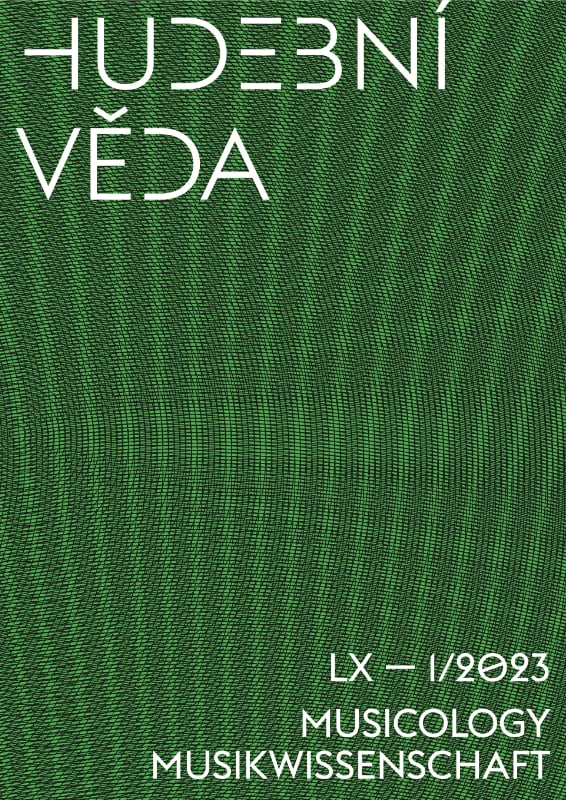Článek | Article
Autor:
Jiří Kopecký
Název:
Building Czech Cultural Life: The Music Department of the Artists’ Society in the First Decade of Its Existence
Variantní název:
Budování českého kulturního života: hudební odbor Umělecké besedy v prvním desetiletí své existence
Zdrojový dokument:
Hudební věda LX (2023), č. 1, s. 12-22.
DOI:
https://doi.org/10.54759/MUSICOLOGY-2023-0101
Trvalý odkaz:
https://kramerius.lib.cas.cz/uuid/uuid:ac1515e9-c2f6-4a21-a999-9ff77c6591ab
English summary:
The Artists’ Society (Umělecká beseda) fundamentally influenced the artistic life in the Czech lands during the 1860s. It organized writers, artists and musicians and was able to direct their individual work towards a collective goal. Although a number of notable events were held, the music branch was constantly criticised by other branches for its passivity. Despite unforgettable realisations (e.g. Shakespearean festival in 1864, performance of Liszt᾽s oratorio Saint Elizabeth) it seems that the music branch was in a state of permanent crisis until the early 1870s, out of which it was guided by Otakar Hostinský, Zdeněk Fibich, and later by Antonín Dvořák. The study analyses in detail the process of how the artists gradually found out how to fulfil their artistic goals while keeping in mind economic profit. Spectacular performances of oratorios or efforts to introduce a series of subscription concerts entered history as extraordinary achievements of Bedřich Smetana, Ludevít Procházka, and other prominent members, but financially they exhausted the society. It was only thanks to the intervention of the literary and artistic department that a correction was made, and it was mainly Ludevít Procházka from the music department who found a way that balanced the purely artistic consideration with the requirements of a lossless economy.
České resumé:
Umělecká beseda zásadním způsobem ovlivňovala umělecký život české společnosti šedesátých let 19. století. Organizovala literáty, výtvarníky a hudebníky a jejich individuální tvorbu dokázala nasměrovat ke společnému cíli. Ačkoliv se podařilo uskutečnit řadu pozoruhodných akcí, byl hudební odbor ze strany ostatní odborů neustále kritizován pro svou nečinnost. Přes nezapomenutelné počiny (např. Shakespearovská slavnost roku 1864, provedení Lisztova oratoria Svatá Alžběta roku 1866) se zdá, že hudební odbor byl až do počátku sedmdesátých let ve stavu krize, ze které byl vyveden až organizační činností Otakara Hostinského, Zdeňka Fibicha a později i Antonína Dvořáka. Studie zevrubně analyzuje proces, jak umělci postupně zjišťovali, jak naplnit umělecké cíle a zároveň dbát na ekonomický profit. Velkolepá představení oratorií nebo snahy o zavedení cyklu abonentních koncertů sice vstoupily do historie jako mimořádné počiny Bedřicha Smetany, Ludevíta Procházky a dalších významných členů, ovšem finančně spolek vyčerpávaly. Až díky zásahu literárního a výtvarného odboru došlo k nápravě a z řad hudebního odboru to byl zejména Ludevít Procházka, který našel cestu, jež vyvažovala zřetel ryze umělecký s požadavky na neztrátové hospodaření.
Keywords:
Artists’ Society; Czech music; oratorio; William Shakespeare
Klíčová slova:
Umělecká beseda; česká hudba; oratorium; William Shakespeare

